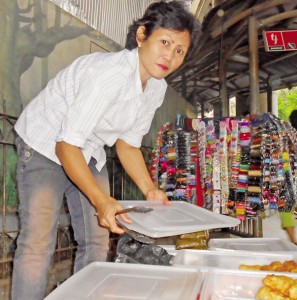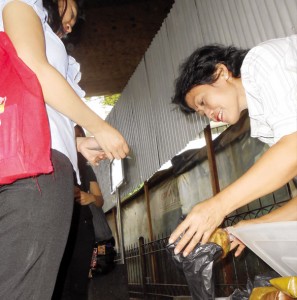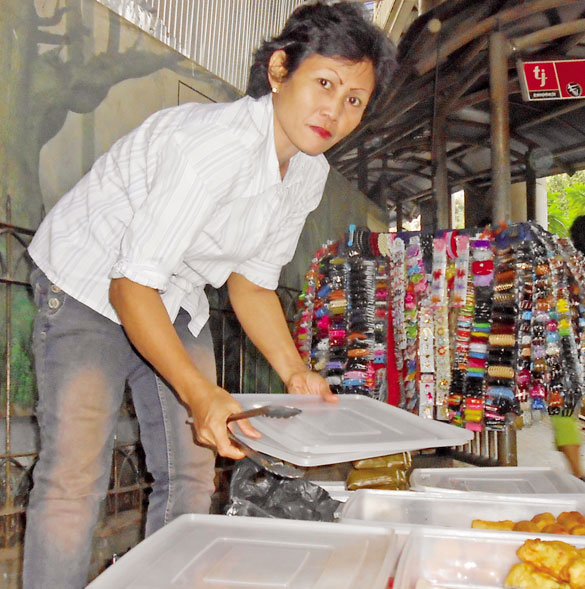 It’s 5:30 on a Thursday evening in the middle of Ramadhan. Yanti, a newly anointed grandmother, is cursorily taking gorengan orders inside the crush of people jockeying to get their hands on her fried Ramadhan favourites—tahu isi, lontong and pastel— just ahead of Maghrib, under the walkway to the Karet busway along Sudirman. Car horns from the traffic a few meters away blare incessantly. The roar of Kopajas mix with the air brakes of the Transjakarta buses. The smell of fried goods and choking exhaust fill the underpass. The city is a living breathing thing—and Yanti is right in the middle of it all.
It’s 5:30 on a Thursday evening in the middle of Ramadhan. Yanti, a newly anointed grandmother, is cursorily taking gorengan orders inside the crush of people jockeying to get their hands on her fried Ramadhan favourites—tahu isi, lontong and pastel— just ahead of Maghrib, under the walkway to the Karet busway along Sudirman. Car horns from the traffic a few meters away blare incessantly. The roar of Kopajas mix with the air brakes of the Transjakarta buses. The smell of fried goods and choking exhaust fill the underpass. The city is a living breathing thing—and Yanti is right in the middle of it all.
But none of this affects Yanti. She doesn’t even seem to notice it. She’s in a trance of sorts. Her fists a blur of silver tongs and wads of cash. Her thin pencilled-in eyebrows crest and fall at the sound of an order. There is very little eye contact with customers. Her head is down. She’s too busy filling orders. Crumbled small bills find the way to her purse while the tongs rifle through Ramadhan favourites bound for grumbling bellies.
For seven years now Yanti has been selling fried goods of all sorts at the Karet underpass. Ramadhan is actually a holiday for her. She gets to sleep in until 3am. Normally, during the rest of the year she wakes up at 1am to prepare the day’s snacks. Eleven months out of the year, Yanti is at the foot of the walkway at 7am. She’s then home by 10am.
 But during the month of Ramadhan Yanti is at her spot a bit before 4pm. She quickly sets up a knee-high table, throws an old cigarette advertisement banner down for a tablecloth and lays nearly 500 different snacks out for customers. She sells out in just under two hours.
But during the month of Ramadhan Yanti is at her spot a bit before 4pm. She quickly sets up a knee-high table, throws an old cigarette advertisement banner down for a tablecloth and lays nearly 500 different snacks out for customers. She sells out in just under two hours.
“Most people who come to me during Ramadhan are so tired from not eating,” says Yanti, who moved to Jakarta from Pekalongan, Central Java nearly four decades ago.
“I have to remind them to take their change or sometimes they point to obvious things like longtong and ask what it is.”
Yanti takes pride in the fact that people come to her at their hungriest. It is this pride that keeps her coming back year after year. It’s not the money that has her waking up every morning to prepare each Rp.2,500 snack by hand.
When the crowd dies down, Yanti takes a minute’s rest on three bricks she has stacked to make a chair. “Business is good here. I’ve been here seven years. I take public transportation here and I do the same when I go back home. I help contribute to the family’s costs, school for my grandchild. My husband is an ojek driver and I have my own business. We are both very happy with what we have. We’ve created all this on our own.”




